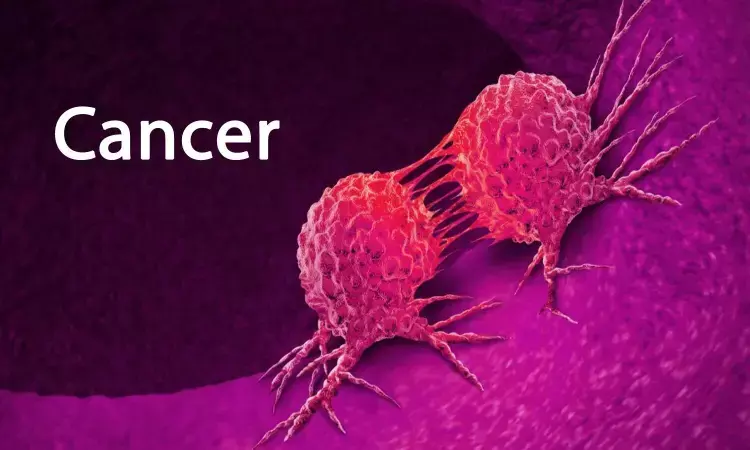- Home
- Medical news & Guidelines
- Anesthesiology
- Cardiology and CTVS
- Critical Care
- Dentistry
- Dermatology
- Diabetes and Endocrinology
- ENT
- Gastroenterology
- Medicine
- Nephrology
- Neurology
- Obstretics-Gynaecology
- Oncology
- Ophthalmology
- Orthopaedics
- Pediatrics-Neonatology
- Psychiatry
- Pulmonology
- Radiology
- Surgery
- Urology
- Laboratory Medicine
- Diet
- Nursing
- Paramedical
- Physiotherapy
- Health news
- Fact Check
- Bone Health Fact Check
- Brain Health Fact Check
- Cancer Related Fact Check
- Child Care Fact Check
- Dental and oral health fact check
- Diabetes and metabolic health fact check
- Diet and Nutrition Fact Check
- Eye and ENT Care Fact Check
- Fitness fact check
- Gut health fact check
- Heart health fact check
- Kidney health fact check
- Medical education fact check
- Men's health fact check
- Respiratory fact check
- Skin and hair care fact check
- Vaccine and Immunization fact check
- Women's health fact check
- AYUSH
- State News
- Andaman and Nicobar Islands
- Andhra Pradesh
- Arunachal Pradesh
- Assam
- Bihar
- Chandigarh
- Chattisgarh
- Dadra and Nagar Haveli
- Daman and Diu
- Delhi
- Goa
- Gujarat
- Haryana
- Himachal Pradesh
- Jammu & Kashmir
- Jharkhand
- Karnataka
- Kerala
- Ladakh
- Lakshadweep
- Madhya Pradesh
- Maharashtra
- Manipur
- Meghalaya
- Mizoram
- Nagaland
- Odisha
- Puducherry
- Punjab
- Rajasthan
- Sikkim
- Tamil Nadu
- Telangana
- Tripura
- Uttar Pradesh
- Uttrakhand
- West Bengal
- Medical Education
- Industry
Anti-nausea drug may help cancer patients survive longer, finds study

Washington: According to a new study, patients with breast, pancreatic and certain other types of cancer may survive longer if given an anti-nausea drug during surgery.
The findings of the study were presented at the ANESTHESIOLOGY 2021 annual meeting.
Three months after their cancer surgery, more than three times as many patients who did not receive dexamethasone died, compared to those who received the drug, researchers found.
Also Read: New combination of old drugs improves survival in patients with prostate cancer
Dexamethasone is given to patients to prevent nausea and vomiting after surgery and during chemotherapy. Researchers found dexamethasone can improve mid-to-long-term outcomes in patients with non-immunogenic cancers (those that don't provoke a strong immune response) such as sarcoma and cancers of the breast, uterus, ovary, oesophagus, pancreas, thyroid, bones and joints.
"Dexamethasone has positive and negative effects -- it inhibits cancer growth, but also suppresses the immune system," said Maximilian Schaefer, MD, PhD, senior author of the study and director of the Center for Anesthesia Research Excellence, Beth Israel Deaconess Medical Center and Harvard Medical School, Boston.
"Previous research has reported that in cancers in which the immune system controls cancer growth, the positive and negative effects of dexamethasone balance each other, so there is no benefit. Ours is the first large study to show that for a wide variety of cancers where the immune system does not play a major role, the positive effects seem to predominate," Schaefer added.
Researchers analysed the records of 74,058 patients who had surgeries to remove non-immunogenic cancerous tumours between 2005 and 2020 at Beth Israel Deaconess Medical Center and between 2007 and 2015 at Massachusetts General Hospital, Boston.
Overall, 25,178 (34 per cent) patients received dexamethasone during surgery. After 90 days, 209 (0.83 per cent) of the patients who had received dexamethasone died vs. 1,543 (3.2 per cent) of patients who did not receive the drug.
After taking into account various factors, including that dexamethasone is often administered to younger patients, those who received the drug still had a 21 per cent reduced risk of dying within one year after surgery. A second analysis determined dexamethasone was particularly beneficial for patients with cancers of the ovary, uterus or cervix.
"Based on our data, physician anesthesiologists should feel more confident in administering dexamethasone to patients undergoing surgery for non-immunogenic cancers," said Dr Schaefer.
"It not only helps with nausea, but it also may result in improved survival," concluded Dr Schaefer.
Also Read:Apollo Hospitals launches Varian's TrueBeam radiotherapy system to treat cancer
Medical Dialogues Bureau consists of a team of passionate medical/scientific writers, led by doctors and healthcare researchers. Our team efforts to bring you updated and timely news about the important happenings of the medical and healthcare sector. Our editorial team can be reached at editorial@medicaldialogues.in.
Dr Kamal Kant Kohli-MBBS, DTCD- a chest specialist with more than 30 years of practice and a flair for writing clinical articles, Dr Kamal Kant Kohli joined Medical Dialogues as a Chief Editor of Medical News. Besides writing articles, as an editor, he proofreads and verifies all the medical content published on Medical Dialogues including those coming from journals, studies,medical conferences,guidelines etc. Email: drkohli@medicaldialogues.in. Contact no. 011-43720751


